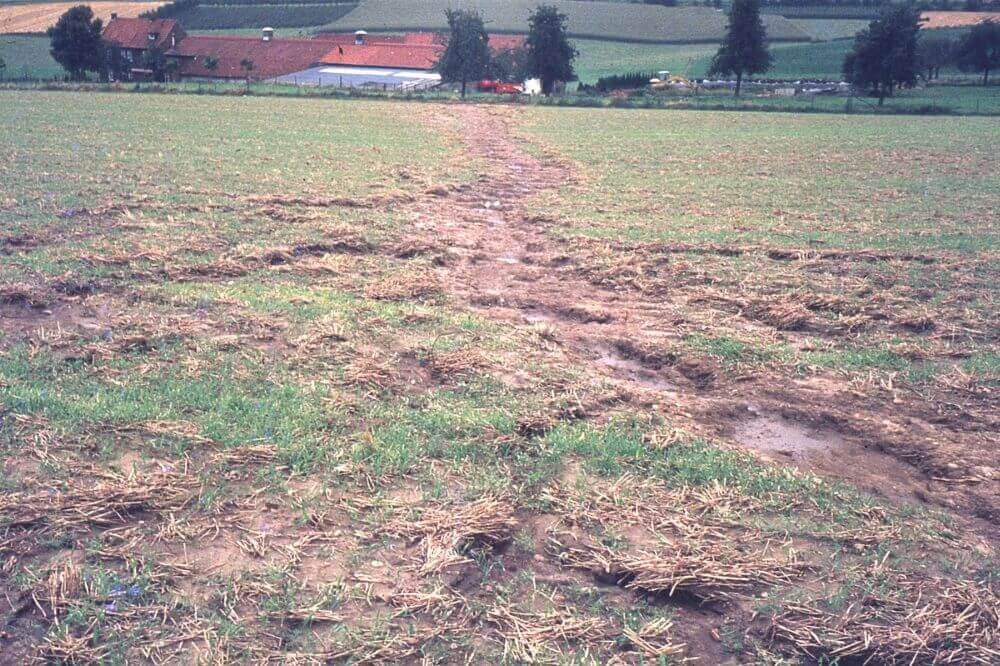
DES MOINES, IA , May 1– Iowa is one of six states selected by the USDA Natural Resources Conservation Service (NRCS) to take part in a pilot project that will provide financial assistance to farmers to address ephemeral gullies on highly erodible land. Other states in the pilot project are Kansas, Missouri, Nebraska, Idaho and Oregon.
State Conservationist Kurt Simon said there is an application deadline of June 21 for the $5 million available in Iowa through the pilot project. He said priority will be given to applicants with tracts that were selected for conservation compliance reviews in the past two years and received variances to address ephemeral gully erosion.
Simon said the pilot will provide financial assistance to farmers to implement conservation practices such as cover crops, no-till, buffer strips, terraces, grassed waterways and others.
Ephemeral gullies are those areas in cropland fields where small gullies appear after heavy rains. Tilling an ephemeral gully to close it leaves nutrient-rich topsoil vulnerable to erosion. Fixing the gullies with conservation practices protects productivity and water quality and allows farmers with highly erodible land to continue receiving USDA benefits.
Since the 1985 Farm Bill, farmers have been required to control erosion on fields that are classified as highly erodible. Each spring, NRCS conducts compliance reviews on a random selection of highly erodible fields to determine if erosion has been adequately controlled. A non-compliance ruling can affect benefits that farmers receive from USDA agencies, including program payments and Price Loss Coverage. If erosion control issues are identified during compliance reviews, farmers may be given variances, which provide time for farmers adjust and install needed conservation practices.
“Our advice to farmers is to work with your local NRCS staff to develop conservation alternatives that will address your erosion issue,” Simon said. “We are dedicated to working with farmers and ranchers to figure out ways for them to produce agricultural products in ways that are both economical to them and respectful of the resources. This pilot provides us with additional funding to do that.”
